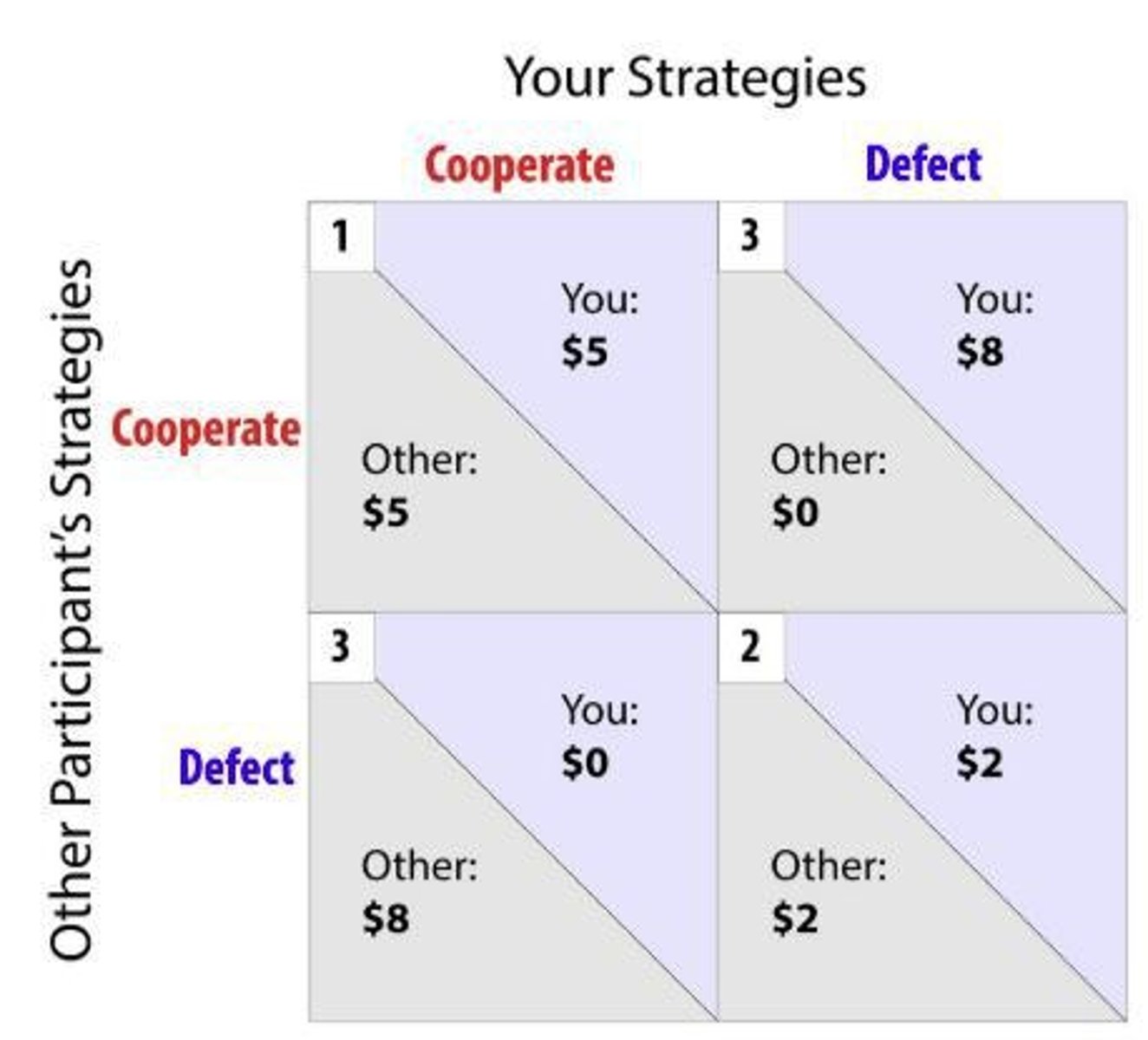Lecture 16 Prosocial Behavior and Cooperation in Psychology
1/22
There's no tags or description
Looks like no tags are added yet.
Name | Mastery | Learn | Test | Matching | Spaced | Call with Kai |
|---|
No analytics yet
Send a link to your students to track their progress
23 Terms
Prosocial behavior
Any act designed to help others.
Altruism
Unselfish behavior that benefits others without regard to consequences for oneself.
Happiness motive
Helping makes us feel good.
Social motives
Esteem and respect, status, praise.
Reciprocity motive
We help those who help us.
Kin selection
More likely to help those who share our genes.
Evolutionary motives
Helping can be adaptive.
Negative state relief hypothesis
People help to lessen their distress.
Empathy
An other-oriented emotional response elicited by and congruent with the perceived welfare of someone else.
Empathy-Altruism Hypothesis
The more empathy felt for a person in need, the more altruistic motivation to see the need relieved.
Cooperation
The coordination of multiple individuals toward a goal that benefits the entire group.
Prisoner's dilemma
Compares cooperation to rational self-interest models.

Social value orientation
One's preference when dividing resources between themselves and others.
Cooperative SVO
Associated with commuting to work using public transportation and more frequent prosocial behavior (such as volunteering and charity).
Situational influences in cooperation
Open communication and verbal, explicit commitments to cooperate predict greater cooperation.
Social trust
Belief that another person's actions will be beneficial to one's own interests.
Bystander effect
The presence of others reduces one's sense of responsibility for helping.
Diffusion of responsibility
The phenomenon where individuals feel less responsible to act when others are present.
Social exchange theory
People take rewards and costs into account when deciding whether to help.
Decision Model of Helping Behavior
5 hurdles to cross before helping occurs.
Pluralistic ignorance
The collective belief in a false norm created by the ambiguous behaviors of others.
Seizure study (Darley and Latane)
Study showing that alone = 85% helped, 3 people = 62% helped, 6 people = 31% helped.
How to improve chances of getting help
Make your need clear and ask a specific person.